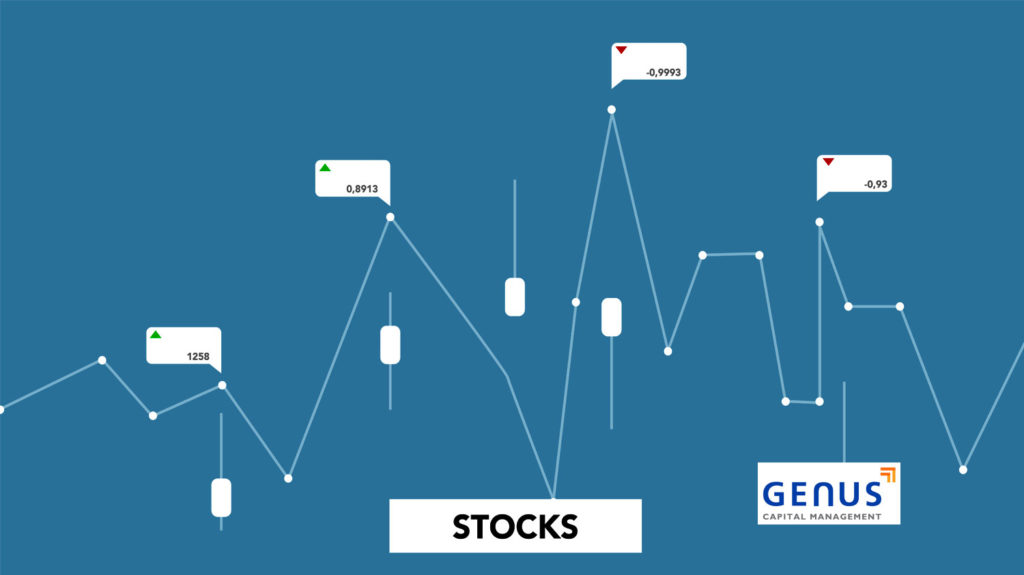This week's questions
[00:00] : Intro
[00:00:17] : So we’ll kick it off as always with what happened in the market this week Wayne?
[00:01:32] : What were the big outcomes for the quarter?
[00:02:27] : You mentioned the bond, the main universe benchmark. I believe most clients would be positioned a bit shorter in duration than that.
[00:03:38] : So this much steeper yield curve is, I think, a positive for banks. But can you kind of talk us through how that works?
[00:05:12] : Can you talk a little bit about how the investment team sifts through dozens of banks to decide which ones to buy?
[00:06:22] : What about the Canadian banks? Don’t they don’t they lend to oil and gas producers or do IPO’s for them and stuff like that? Should we be more cautious about the Canadian banks given the fossil free length?
Thomas Holloway: [00:00:04] HI welcome everybody to our latest Friday Market Insights. My name is Thomas Holloway and I’m a portfolio manager and I’m joined today by Wayne Wachell, CEO of Genus Capital. Thanks for being with us, Wayne.
Wayne Wachell: [00:00:16] Good to be here.
Thomas Holloway: [00:00:17] So we’ll kick it off as always with what what happened in the market this week Wayne?
Wayne Wachell: [00:00:23] Well, the market this week was a bit of a reversal from the first quarter. The first quarter we had value stocks run growth prospects didn’t do that well. And also the first quarter bonds back up. This week here, the growth stocks did better. The markets were up. We had 4K on the S&P 500 today, which is quite a quite a landmark and driven more by the technology this week. Value stocks took a bit of a rest during the course of this week. So once that we have back up so much during the first quarter, yields back up over 80 basis points. the U.S. tenure hit one seventy seven. Took a bit of a rest this week and yields came down about 10 basis points. And that helped the long duration tech stocks and the growth stocks, which of course, for the rest of the week.
Thomas Holloway: [00:01:10] Great, thanks for that and really great intro, I guess, since today is April 1st, I’m not going to make any jokes, but I am to leave.
Wayne Wachell: [00:01:19] Please no. Don’t go there.
Thomas Holloway: [00:01:20] But I will reflect on the fact that in financial markets we marked things by quarter. So, you know, yesterday was quarter-end, you know, taking a step back, not just talking about the week, but on the whole quarter. What were the big outcomes for the quarter?
Wayne Wachell: [00:01:35] Well, the bifurcation between stocks and bonds, stocks, the S&P 500 is up over six percent, TSX were at nine percent. The main bond index in Canada was down almost five percent. So a big difference in terms of what performed for the quarter. As well, value did very well compared to growth stocks. Commodities went sideways, value is upside, SmallCap did well and our dividend strategy did very well during quarter as well, with more value driven, less less tech stocks in there. So quite a quarter. And we think it’s a theme that will probably continue for the course of this year as we get more evidence of the pandemic subsiding. But it was a big quarter and a good quarter for value and for our dividend strategy.
Thomas Holloway: [00:02:21] Great. Yeah, it is quite a surprising number in the bond market, I guess something that we’ve been talking about maybe happening for a long time. You mentioned the bond, the main universe benchmark. I believe most clients would be positioned a bit shorter in duration than that.
Wayne Wachell: [00:02:36] Well, yes, a Genus our to maturity or duration were shorter than much shorter than the benchmark. And we had more exposure to corporate sector and spread sector that is less sensitive rates back up. The government of Canada and Treasuries tend to get hit harder during this kind of environment. So, yeah, so that would have helped the performance in Q1 and also our exposure to to value. And also we had more stock. We were overweight stocks, underweight bonds as well during the quarter.
Thomas Holloway: [00:03:04] So, yeah, thanks for that. Of course we can have more detailed attribution once we get a couple of days to think about it. So yeah, I think I just wanted to carry on with that theme. I mean, one reason why the bond market returns were so weak this quarter is, of course, that the yields went up and they went up, in particular the tens or the lungs part of the curve and the front end has been much more anchored where the central banks can keep it that way. So that that’s why we call the yield curve. So the yield curve is obviously important to the bond market, but it’s also quite important to some of our equity holdings. And in particular, I wanted to talk about the banking sector. So this much steeper yield curve is, I think, a positive for banks. But can you kind of talk us through how that works?
Wayne Wachell: [00:03:45] Yes. Will yield curve. The banks tend to trade with the yield curve. If your yield curve goes up, interest rates go up long and it does well because you can borrow at lower rates and invest at higher rates. And so and also the economy tends the yield curve also the forecast for stronger economic growth. Stronger economic growth means better collateral values, better asset values within their portfolio. So it really helps the banks. It’s the big, banks have underperformed for a long time. We went longer the banks VS the benchmark in Q4 of last year, we were hanging on from that position because we think there’s more to run here. We see inflation coming back this year. We don’t see that in the next couple of years. It’s going to be a little stronger, I think, than it’s been over the past decade. That also helps bank collateral values. And as rates go up, banks have more cash flow. That also helps their valuation compared to technology stocks. So we think there’s a good play there in in. And it’s going to be I think you’re going to have some legs in the course of this year as well. So we’re positioned there and hopefully we’ll we’ll see that come to bear.
Thomas Holloway: [00:04:51] Yeah. It also connects back to your earlier comments about value. Banks are one of the more classic value sectors. So those those comments kind of they make sense with each other. Sticking with the banking sector, Genus also, in addition to making these kind of sector asset class calls, obviously also picks down to the individual securities. So know one bank versus another. Can you talk a little bit about how the investment team sifts through dozens of banks to decide which ones to buy?
Wayne Wachell: [00:05:18] Well, we have a multi style approach at Genus. We look at value, we look at growth. We look at technical factors like momentum, look at analyst revision. We even have some ESG factors in play. And that all goes into creating a model that we actually back test in has predictive value. And so we have models specifically for the banks themselves, for the financial sector, which tend to be little more value oriented. Then we also have other models to look across the overall markets. We get different perspectives, one prosector, one for the overall market. And within that, from that perspective, that’s how we look at banks within our portfolio. For example, in Canada, our models have favoured the TD Bank and Royal Bank for the past couple of years, and they’re just more diversified. They have more growth. They’re actually in the US market place. They actually are big time into wealth management as well. So those things give them more growth and more analyst provisioning besides besides value volume. So they tend to be favored within our with our approach.
Thomas Holloway: [00:06:16] Excellent. Thank you. A common question that we get from some of our fossil free clients is know what about the Canadian banks? Don’t they don’t they lend to oil and gas producers or do IPO’s for them and stuff like that? Should we be more cautious about the Canadian banks given the fossil free length?
Wayne Wachell: [00:06:33] When you look at companies through the lens of ESG, it’s really a data or metric need. You need you have to know what’s going on with the companies. And right now at Genus, we have over eighteen hundred different ways to look at companies and from their ESG exposure. Within the banks, we don’t have the same kind of data or telemetry and we’re involved in lobbying them to get better transparency in their loan portfolio. That’s going to take time. And what we’ve done to deal with that lack of data or telemetry is focus on controversy. So if there is issues around a certain bank, we will take it out of our universe and we can only box, if you will. We have to sell our services that are involved in that most ESG type organizations or. Organizations have watch lists and it’s becoming more and more sophisticated, but it’s really becoming a data game is what it is, and hoping that one day we get the data we need to make these decisions. It’s our job at Genus to take all this data, sift through it, look at structures and models within that data and get the best perspective. Given all that information. There’s so much information in the world today we must be able to sift through and make intelligence on that. Right. So that’s that’s our job at Genus.
Thomas Holloway: [00:07:51] Yeah. And I just add on your point about lobbying the banks through shareholder activism. I mean, it’s working. The Canadian banks actually are getting much, much better with their sustainability reports. I mean, getting down to the nuts and bolts is always going to be very hard for for them and for us. But certainly the transparency is getting better. So we can I think we should attribute that to a win for ESG investors like us.
Wayne Wachell: [00:08:16] Exactly. ESG is such a strong trend right now. It’s forcing CEOs to change their ways and become more transparent. That’s a fact.
Thomas Holloway: [00:08:24] Great. Well, I think we’re going to leave it there. Wayne, thanks a lot for your time. And thanks so much for the viewers for checking out our early edition this week, Thursday because of Easter. So all the best to you and your families for Easter. And please check in with your portfolio managers and let us know some questions for next week. Thanks again for listening by.

Friday Market Insights – Stock Market is concerned about higher rates and future inflation












